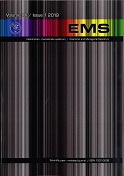FINANCIAL INCLUSION: A PANACEA FOR ATTAINING SUSTAINABLE DEVELOPMENT IN DEVELOPING COUNTRIES LIKE NIGERIA
FINANCIAL INCLUSION: A PANACEA FOR ATTAINING SUSTAINABLE DEVELOPMENT IN DEVELOPING COUNTRIES LIKE NIGERIA
Author(s): Reuben O. OsagieSubject(s): Gender Studies, Regional Geography, Developing nations, Economic development, Financial Markets
Published by: Žilinska univerzita v Žiline, Fakulta prevádzky a ekonomiky dopravy a spojov, Katedra ekonomiky
Keywords: credit and loans facilities; financial inclusion; financial literacy; gender equality; sustainable development;
Summary/Abstract: The study “Financial Inclusion: A Panacea for Attaining Sustainable Development in Developing Countries like Nigeria” was embarked on by the researcher with the view of ascertaining whether financial inclusion of majority of citizens on part of the government can lead to sustainable development in line with the UN (2015) Sustainable Development Goal. The sub-variables under consideration were access to loans and credit facilities; and financial literacy for the independent variable financial inclusion and poverty reduction; gender equality for the dependent variable sustainable development. Cross-sectional descriptive research design was adopted by the researcher. The researcher used primary data to elicit information for this study. The population for the study was taken from six (6) communities selected from 6 Local Government Areas from the Lagos and Ogun States, with each state contributing 3 communities, respectively. A total of 750 questionnaires was distributed, with 125 questionnaires handed out to each respective community; 532 questionnaires were returned in a form usable for the study, amounting to 70.9% deemed valid to arrive at a valid conclusion. Content validity was adopted for this study. Reliability test was conducted using Cronbach Alpha, which returned 0.837, showing internal consistency of the research instrument. Descriptive statistics such as mean, simple percentage were used to analyze the demography of respondents while regression and Pearson correlation coefficients were used to analyze the data. The findings revealed that access to loans and credit facilities lead to poverty reduction in developing countries like Nigeria, and financial literacy is a prerequisite for ensuring gender equality in developing countries like Nigeria, with a p value of 0.000<0.05, a correlation coefficient of 0.651, an unstandardized coefficient of 1.204 (120.4%). The results and findings were sufficient to assert that financial inclusion is indeed a panacea for attaining sustainable development in developing countries like Nigeria.
Journal: Ekonomicko-manazerske spektrum
- Issue Year: 14/2020
- Issue No: 2
- Page Range: 1-11
- Page Count: 11
- Language: English

